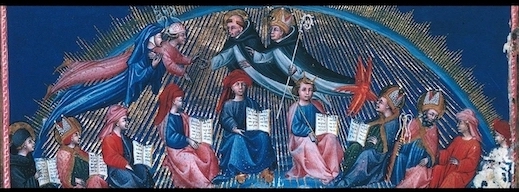A proposta de sã laicidade em Bento XVI
Palavras-chave:
healthy secularity, secularity, State-Church RelationsResumo
Tomando como base a Sagrada Escritura e o Magistério, este artigo pretende identificar o que a Igreja entende como “sã laicidade” em oposição a um poder público confessional do laicismo, fechado à participação e benéfica influência da Igreja. Esta possui não só uma doutrina clara a respeito da questão, como também tem propostas a fazer às instâncias públicas para que o homem possa viver num ambiente em que todas as instituições colaborem para o bem comum da pessoa, isto é, que a atinja na plenitude, integridade e multiplicidade do seu ser. Vários Pontífices, a partir de Pio XII, abordaram a questão com uma peculiar insistência, sobretudo Bento XVI, que nos deixa uma série de documentos e alocuções onde aborda o tema da laicidade, e em especial a sã laicidade, terminologia relativamente recente, havendo a necessidade de compendiar o que foi dito acerca dela e estudar a possibilidade de instaurá-la nas diversas realidades. Entretanto, alguns autores colocam entraves à participação visível ou à influência da Igreja no contexto social e político. Ora, tal exclusão compromete a própria laicidade, pois esta depende de valores pré-políticos que não são estranhos à Igreja. /// Based on Sacred Scripture and the Magisterium, this article aims at identifying what the Church understands as healthy secularity as opposed to a public confessional power of laicism, closed to the participation and the beneficent influence of the Church. The latter possesses not only a clear doctrine in this respect, but also has proposals to make to the public authorities so that man may live in an atmosphere in which all institutions collaborate for the common good of the person, that is, that he attain the plenitude of the integrity and the multiplicity of his being. Various Pontiffs, from Pius XII, have dealt with this subject with striking emphasis, above all Benedict XVI, who has left us a series of documents and pronouncements covering the theme of secularity, especially wholesome secularity, of relatively recent terminology, necessitating the summarization of what has previously been said about it and studying the possibility of introducing it in diverse realities. Despite this, some authors place impediments to the visible participation or to the influence of the Church in the social and political context. Such exclusion, however, compromises secularity itself, which depends on pre-political values that are not estranged from the Church.Edição
Seção
Articles






